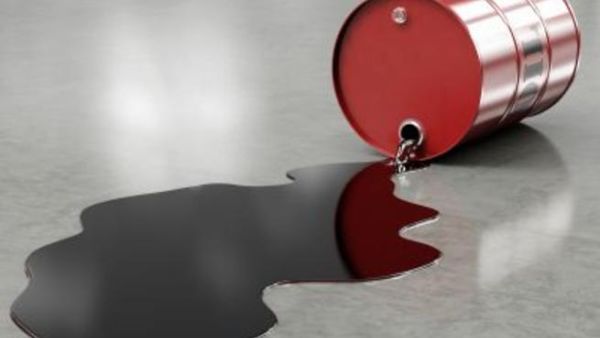Brent crude has risen to $112. When the Benghazi uprising led to Nato air attacks against Colonel Gaddafi’s military bases in April 2011, Brent rose to $126 a barrel in a buying panic.
Iraq produces 3.6 million barrels a day, making it far more important for the oil market than Libya, let alone Crimea and Ukraine. The Nuri Al Maliki government has been unable to defeat the Isis and Al Qaeda, whose militia has overrun Mosul. The Isis/Al Qaeda militia is now 40 miles away from Baghdad, a frightening prospect for oil traders. US and European contractors have begun to evacuate Iraqi oilfields. The Baiji refinery is in the middle of the war zone. The northern pipeline to Turkey is under threat. The Kurdish pesh merga has taken Kirkuk, in violation of past commitments to Turkey. If US shale production did not exist, Brent could have traded at $180 a barrel. It still might if the Iraqi civil war escalates into a wider war that could drag in parts of the Middle East, the US and Russia.
There have been oil panics in past Middle East crises. However, the current crisis is far more serious since it threatens Iraq’s oil production and very existence as a state. Brent could well trade at $130 if Baghdad falls to the Isis.
I am concerned that President Barack Obama will tighten financial sanctions against Russia and ban Western companies from exporting technology, capital or management expertise to their Russian joint ventures. Without Exxon’s technology, Russia cannot accelerate shale oil development in Siberia and thus maintain its current production rate of 10 million barrels a day. BP could well be forced to sell its 19.6 per cent stake in Rosneft and the Western consortia to build Gazprom pipelines in Europe would not be politically possible.
Shell and Total could be forced to freeze their Russian LNG export projects Russia’s role as a global energy superpower would then no longer be viable, a key objective of the US ever since Siberian gas was first grilled and exported under the Leonid Brezhnev Politburo in the 1960s USSR. Gas markets could be severely disrupted if Vladimir Putin invades eastern Ukraine and the Western sanctions noose tightens around the Kremlin. Foreign investment in Russian energy exploration, pipeline and LNG exports will decline. Russia has paid a painful economic price for Putin’s annexation of Crimea as capital flight rises to its highest level since the fall of the Soviet Union.
It is surely significant that US sanctions target Rosneft chief Igor Sechin, the Kremlin’s energy tsar (actually, vice tsar since his power derives from Tsar Vladimir) and several oil trading, gas production, drilling and construction billionaire oligarchs close to Putin.
The Kremlin’s strategy to control Russian oil assets will fall apart if Putin’s loyal oligarchs, the chief executives of state-owned firms Rosneft and Gazprom or strategic joint ventures with Western supermajors are all threatened by US sanctions. Putin’s rise to power since 2000 coincided with a 10-fold rise in global oil prices, the political and financial destruction of defiant energy oligarch Michael Khodorovsky (once Russia’s ticket man) and the dominance of the silivoki, ex-intelligence officers from the KGB and GRU, in Gazprom and Rosneft board rooms. Putin destroyed Yukos, built Gazprom as the EU’s dominant gas supplier, seized control of strategic gas projects in Siberia and the Yamal Nenets regions in the Artic and inked deals with BP, Exxon, Shell, Total, ENI, Statoil and Chevron to attract foreign investment in Russia’s biggest oil and gas projects.
Putin did not hesitate to use his “gas weapon” to intimidate Ukraine, Belarus, Armenia and Moldova over pricing disputes. Now Russia’s entire energy infrastructure is under threat due to sanctions. It will be impossible for major Western banks to finance oil/gas field development in Siberia or the Russian Arctic, let alone new pipeline networks to Western Europe. This will have a negative impact on capex since Gazprom alone had a capex budget of $24.4 billion in 2013.
By Sarie Khaled
The writer is a Dubai-based research analyst in energy and GCC economics.








